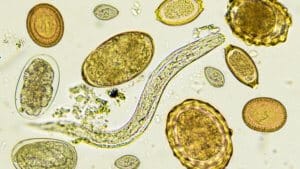How glutathione can benefit your overall health

How glutathione can benefit your overall health
Adequate availability of glutathione, a master antioxidant in the body, is critical for maintaining health, protecting the body from toxins and promoting longevity.
Your body produces its own glutathione, but poor diet, pollution, toxins, methylation imbalances, nutrient deficiencies such as B6, medications, stress, trauma, aging, infections and radiation can all contribute to the depletion of your stores of glutathione. (1)
With a Functional Medicine approach, through testing and diagnosis, diet and supplement support, patients can restore their glutathione levels to optimum levels and return to health.
What is glutathione – Master antioxidant
Glutathione is a master antioxidant produced in cells. It is a tripeptide – a very small protein and is comprised largely of three amino acids: glutamine, glycine, and cysteine.
Glutathione is often called the “master” antioxidant, glutathione boosts the utilization and recycling of other antioxidants, namely vitamins C and E, as well as alpha lipoic acid and CoQ10. (2)
It is found in surprisingly high levels—5 millimolar—concentrations in most cells. This is the same concentration in cells as glucose, potassium, and cholesterol. Considering the high level of metabolic activity required to produce glutathione, such a high level underlines its importance. (3)
Glutathione and mitochondria
Glutathione protects your mitochondria, the “power plants” of your cells, ensuring your cells are able to make the energy your body needs.
But mitochondria can also sense danger when cell energy levels drop and are involved in sending the final message when a cell is damaged beyond repair and needs to die.
Mitochondria need to be protected, and it is glutathione that guards mitochondria, making sure heavy metals, organic toxins, and free radicals generated during normal metabolism don’t damage the mitochondria. (4)
Glutathione and the methylation pathway
https://advancedfunctionalmedicine.com.au/mthfr-perth/The methylation pathway is crucial to glutathione production in the body. This is because the methylation cycle is directly joined with the transsulfuration pathway. Transsulfuration is how we make glutathione. Some of the homocysteine that is made from methylation reactions is used to make cysteine (with sufficient B6 as a cofactor), which then combines to form glutathione.
People with MTHFR gene mutations are more susceptible to stress and toxins due to decreased levels of glutathione. If we have certain, expressive methylation gene mutations that are limiting our ability for normal enzymatic reactions, our glutathione synthesis and utilization may be directly compromised. CBS (cystathionine beta synthase) is one such gene/enzyme. MTHFR, MTRR, AHCY are others.
With or without these gene mutations, if we lack the nutrient cofactors for glutathione synthesis or methylation reactions, we may not be producing enough glutathione.
Some people may be at an increased risk of B-6 deficiency and any serious glutathione promotion therapy should involve P5P or Vitamin B-6. (5)
How does glutathione benefit my health?
The role of glutathione in your bodily function cannot be understated. Healthy levels of glutathione possess some potent health benefits, including anti-aging properties.
These health benefits largely relate to glutathione’s role in these vital bodily processes:
- Enzyme/protein function
- Cysteine carrier/storage
- Gene expression
- Cell differentiation/signalling/proliferation
Glutathione, the master antioxidant is said to protect against a wide range of health problems, including atherosclerosis, Lyme disease, Alzheimer’s disease, chronic fatigue syndrome, colitis, high cholesterol, osteoarthritis, alcoholism, asthma, cataracts, diabetes, glaucoma, heart disease, hepatitis, liver disease and Parkinson’s disease. (6)
Reduces oxidative stress
The most powerful functions glutathione offers your system are its antioxidant properties. Glutathione fights free radicals and the oxidative damage they cause.
Oxidative stress occurs when there’s an imbalance between the production of free radicals and the body’s ability to fight them off. Too-high levels of oxidative stress may be a precursor to multiple diseases, including autoimmune diseases. These include diabetes, cancer, and rheumatoid arthritis. Glutathione helps stave off the impact of oxidative stress, which may, in turn, reduce disease. Research has also shown that glutathione deficiency can lead to increased levels of oxidative stress, which might lead to cancer. It also stated that elevated glutathione levels raised antioxidant levels and resistance to oxidative stress in cancer cells.
Reduces inflammation
Glutathione (GSH) blocks the production of most inflammatory cytokines. If you suffer from chronic health issues, cytokines may keep you in a state of constant low-grade inflammation.
A study has shown that glutathione deficiency caused inflammation in mice. Blocking inflammatory pathways (MAPK and iNOS) restored its levels, suggesting that glutathione and inflammation are in a very tight, mutual relationship. (7)
On the other hand, glutathione blocks NF-κ, the master controller of inflammation in the body. This protein complex increases the activity of various inflammatory genes and their products.
A number of airway and lung diseases are caused by excessive inflammation, and they can benefit from restoring healthy glutathione levels.
Anti-aging properties
With less glutathione, free radicals may harm the body and accelerate the aging process and cognitive decline. Multiple studies uncovered that the body makes less of this antioxidant as it ages. (8)
In women, its levels drop at the beginning of menopause and remain lower after. Increased oxidative stress from low levels in older people can make the bones more fragile and contribute to osteoporosis.
Cells depleted of glutathione are susceptible to damage. Low levels trigger a cascade that ultimately leads to cell injury and death, which accelerates aging.
Reduces cell damage in alcoholic and non-alcoholic fatty liver disease
Cell death in the liver may be exacerbated by a deficiency in antioxidants, including glutathione. This can lead to fatty liver disease in both those who misuse alcohol and those who don’t. Glutathione has been shown to improve protein, enzyme and bilirubin levels in the blood of individuals with alcoholic and non-alcoholic chronic fatty liver disease.
Improves insulin resistance in older people
As people age, they produce less glutathione. A study used a combination of animal and human studies to explore the role of glutathione in weight management and insulin resistance in older individuals. Study findings indicated that low glutathione levels were associated with less fat burning and higher rates of fat storing in the body.
Older subjects had cysteine and glycine added to their diets to increase glutathione levels, which spiked within two weeks, improving insulin resistance and fat burning. (9)
Reduces symptoms of Parkinson’s disease
Parkinson’s disease affects the central nervous system and is defined by symptoms such as tremors. It currently has no cure. One study documented intravenous glutathione’s positive effects on symptoms such as tremors and rigidity, suggesting that glutathione may help reduce symptoms, improving quality of life in people with this disease. (10)
May reduce the impact of uncontrolled diabetes
Long-term high blood sugar is associated with reduced amounts of glutathione. This can lead to oxidative stress and tissue damage. A study found that dietary supplementation with cysteine and glycine boosted glutathione levels. It also lowered oxidative stress and damage in people with uncontrolled diabetes, despite high sugar levels. (11)
How do glutathione levels become depleted?
Your body has the ability to recycle glutathione. This process requires alpha lipoic acid, vitamin C and vitamin B2 (riboflavin). It takes 6 -12 months to build your glutathione stores once they are depleted. (12)
Glutathione levels in the body may be reduced by a number of factors. These include:
- poor nutrition
- environmental toxins
- stress
- aging
How do I know if I have a glutathione deficiency?
Warning signs that you may have a mild to moderate deficiency include:
- Lack of energy
- Joint and muscle aches and pains
- Foggy brain
- Low immunity
- Poor sleep
Symptoms of a severe insufficiency include:
- Anaemia
- Metabolic acidosis (build-up of too much acid in the body)
- Frequent infections
- Seizures, Alzheimer’s, Parkinson’s
- Loss of coordination
- Liver disease
- Heart attack and stroke (13)
How to optimise glutathione levels
Fortunately, there is much we can do to optimize glutathione levels: primarily decrease toxin exposure (including alcohol) and promote production with regular consumption of sulphur containing foods and supplements.
In addition to being produced naturally by the body, glutathione can be given intravenously, topically or as an inhalant. It’s also available as an oral supplement in capsule and liquid form.
Glutathione contains sulphur molecules, which may be why foods high in sulphur help to boost its natural production in the body. These foods include:
- cruciferous vegetables, such as broccoli, cauliflower, Brussels sprouts, and bok choy
- allium vegetables, such as garlic and onions
- eggs
- selenium-rich foods like Brazil nuts and sardines
- legumes
- lean protein, such as fish and chicken
Other foods and herbs that help to naturally boost glutathione levels include:
- milk thistle
- flaxseed
- guso seaweed
- whey
- magnesium
- N-acetyl cysteine (NAC)
- alpha lipoic acid
- vitamins B6, B9, B12 and Biotin (methylation nutrients)
- vitamins C and E
- curcumin
Glutathione is also negatively affected by insomnia. Getting enough rest on a regular basis can help increase levels.
Side effects and risks
A diet rich in glutathione-boosting foods does not pose any risks. However, taking supplements may not be advisable for everyone so it’s important to talk to a professional to prescribe you with the correct dosage.
Possible side effects may include:
- abdominal cramps
- bloating
- trouble breathing due to bronchial constriction
- allergic reactions, such as rash
How we can help you
Glutathione is a powerful antioxidant that’s made in the body’s cells. Its levels decrease as a result of aging, stress, and toxin exposure. Boosting glutathione provides many health benefits, including reduction of oxidative stress.
Get in touch with us to find out more about how we can help you boost your glutathione levels and assess and balance your biochemical pathways.




